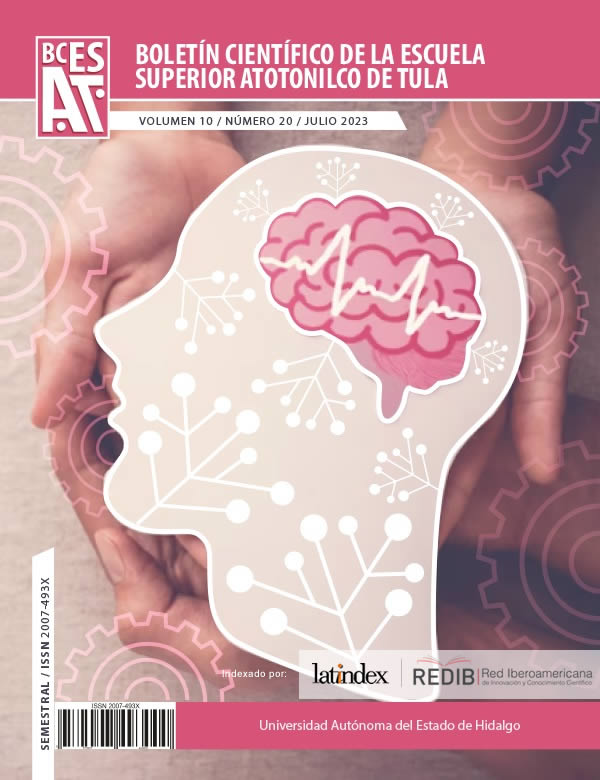Technological capital and academic performance in migrant university students of educational modality due to the COVID-19 pandemic
Abstract
This research aimed to identify the level of technological capital of university students and its relationship with academic performance before and during the migration of educational modality due to confinement in the COVID-19 pandemic. Technological capital refers to the knowledge related to ICT and how these are put into play to favor or not the formation of the student body. Academic performance was considered as the measure of the skills, abilities and knowledge built in the training spaces. During the migration of the educational modality, technological capital played a determining role in student performance, specifically it was thought that there is a directly proportional relationship, that is: the greater the technological capital, the better the academic performance and vice versa. From techniques and instruments of the quantitative methodology, basic and inferential statistics, the questionnaire as a technique and the instrument Technological capital and academic performance, which showed reliability, the established objective was fulfilled. It is necessary to mention that the instrument was subjected to the Kuder Richardson test, what was obtained allows us to indicate that it is reliable. The results indicate that most of the participants have a medium level of said capital. In addition, it was found that the level of technological capital was in correspondence with the academic performance of the students during the migration of educational modality, because those who showed greater capital were those who registered more cases of increase in academic performance, in In contrast, those with a lower level were the ones that least increased their performance.
Downloads
References
Aguilar, F. R. (2020). Del aprendizaje en escenarios presenciales al aprendizaje virtual en tiempos de pandemia. Revista Estudios Pedagógicos, 46(3), 213-223.
Aguilar, J. L., Ramírez, A. y López, R. B. (2014). Literacidad digital académica de los estudiantes universitarios: un estudio de caso. Revista Electrónica de Investigación y Docencia (REID), 11(1), 123-146.
Aparicio, A. (2009). Las TIC y la pandemia de influenza: Desafío para la Salud Pública. Revista Costarr Salud Pública, 18(1), 1-4.
Bourdieu, P. (1987). Los tres estados del capital cultural. Revista Sociológica, 2(5), 1-6.
Bourdieu, P. y Passeron, J. C. (2009). Los herederos: los estudiantes y la cultura. Argentina: Siglo XXI.
Bracho, T. (1990). Capital cultural: impacto en el rezago educativo. Revista Latinoamericana de Estudios Educativos, 20(2), 13-46.
Campo, A. y Oviedo, H. (2008). Propiedades Psicométricas de una Escala: la Consistencia Interna. Revista Salud Pública, 10(5), 831-839.
Cardini, A., Bergamaschi, A., D´Alessandre, V., Torre, E. y Ollivier, A. (2020). Educar en pandemia: entre el aislamiento y la distancia social. Estados Unidos: Banco Interamericano de Desarrollo.
Casillas, M. A., Ramírez, A., y Ortiz, V. (2014). El capital tecnológico una nueva especie de capital cultural. Una propuesta para su medición. En A. Ramírez y M. A. Casillas, Háblame de TIC: Tecnología digital en la Educación Superior (pp. 23-38). Córdoba, Argentina: Brujas.
Cerón, A. (2019). Habitus, campo y capital. Lecciones teóricas y metodológicas de un sociólogo bearnés. Cinta moebio, 66(1), 310-320.
Colorado, A. (2009). El capital cultural y otros tipos de capital en la definición de las trayectorias escolares universitarias. X Congreso Nacional de Investigación Educativa. Consejo Mexicano de Investigación Educativa. Veracruz, México.
Echandia, A. (2020). Migración de modelo de atención educativa en tiempos de COVID-19. Revista Ciencias de la Educación, 30(Edición Especial), 1067-1077.
Ferrada, V., González, N., Ibarra, M., Ried, A., Vergara, D. y Castillo, F. (2021). Formación docente en TIC y su evidencia en tiempos de COVID-19. Revista Saberes Educativos, 6(1), 144-168.
García, F., Fonseca, G. y Concha, L. (2015). Aprendizaje y rendimiento académico en educación superior: un estudio comparado. Revista Electrónica Actualidades Investigativas en Educación, 15(3), 1-26.
Gómez-Delgado, Y. A., Muñoz, D. M., Benavidez, J. C., Luna, E. G. y Ortiz, L. A. (2013). Conducta de elección bajo paradigma de auto control y desempeño académico en una situación grupal. CES Psicología, 6(2), 105-116.
Hernández, R. M. (2017). Impacto de las TIC en la educación: Retos y Perspectivas. Propósitos y Representaciones, 5(1), 325-347.
Ibarra, A. M. y Llata, D. E. (2010). Niños nativos digitales en la sociedad del conocimiento: acercamientos conceptuales a sus competencias. Razón y Palabra, 72(1), 1-25.
Núñez-Hernández, C., Hernández, V., Jerez, D., Rivera, D. y Núñez, M. (2018). Las habilidades sociales en el rendimiento académico en adolescentes. Revista de Comunicación de la SEECI, 47(15), 37-49.
Obando, J. A. y Mieles, J. L. (2017). El rendimiento académico: aproximación necesaria a un problema pedagógico actual. Revista Conrado, 13(58), 213-220.
Oyarzún, G., Estrada, C., Pino, E., y Oyarzún, M. (2012). Habilidades sociales y rendimiento académico: una mirada desde el género. Acta Colombiana de Psicología, 15(2), 21-28.
Parra, C. A. (2012). TIC, conocimiento, educación y competencias tecnológicas en la formación de maestros. Revista Nómadas, 36(1), 145-159.
Peña, F. y Otálora, N. (2018). Educación y tecnología: problemas y relaciones. Pedagogía y Saberes, 48(1), 59-70.
Pérez-Villalobos, M. V., Cobo-Rendón, R. C., Sáez, F. M. y Díaz-Mujica, A. E. (2018). Revisión Sistemática de la Habilidad de Autocontrol del Estudiante y su Rendimiento Académico en la Vida Universitaria. Formación Universitaria, 13(2), 39-52.
Salado, L. I. y Ramírez, A. (2018). Capital cultural en el contexto tecnológico: consideraciones para su medición en la educación superior. Revista Iberoamericana de Educación Superior, 29(9), 125-137.
Suárez, J. L. (2015). El capital cultural de los estudiantes de nuevo ingreso a las disciplinas de humanidades en la Universidad Veracruzana. Revista CPU-e, 10(20), 100-130.
Suárez, J. L. y Alarcón, J. F. (2015). Capital cultural y prácticas de consumo cultural en el primer año de estudios universitarios. Revista Interamericana de Educación de Adultos, 37(1), 42-62.
Zamora, R. y Cañedo, C. (2008). La Biblioteca Virtual: Reflexiones y consideraciones teóricas. Biblios, 33(1), 1-14.
Copyright (c) 2023 Erick Cajigal Molina, Santa del Carmen Herrera Sánchez, Heidi Angélica Salinas Padilla, Juan José Díaz Perera

This work is licensed under a Creative Commons Attribution-NonCommercial-NoDerivatives 4.0 International License.










